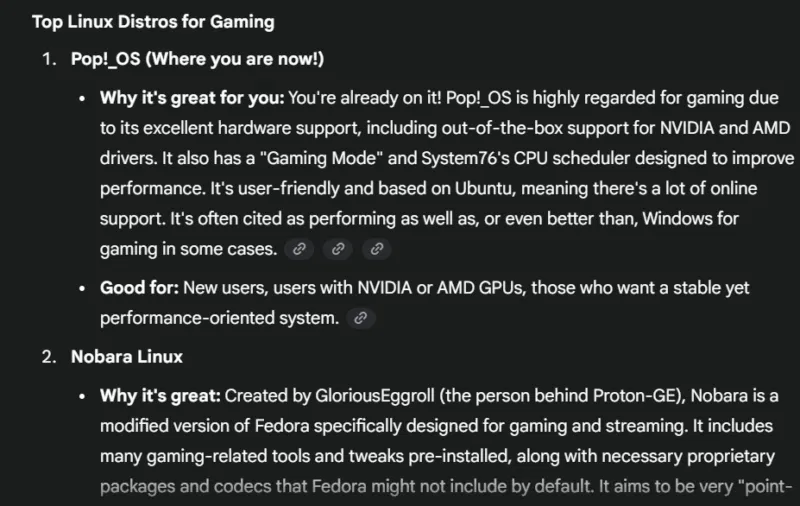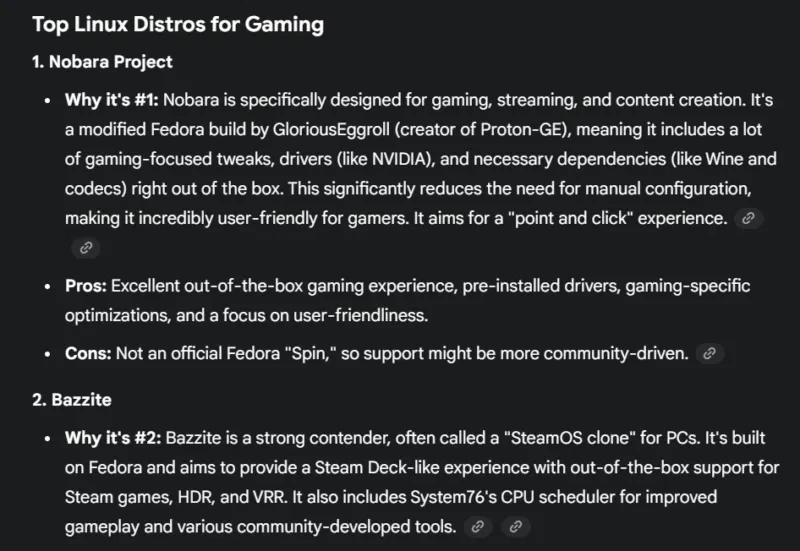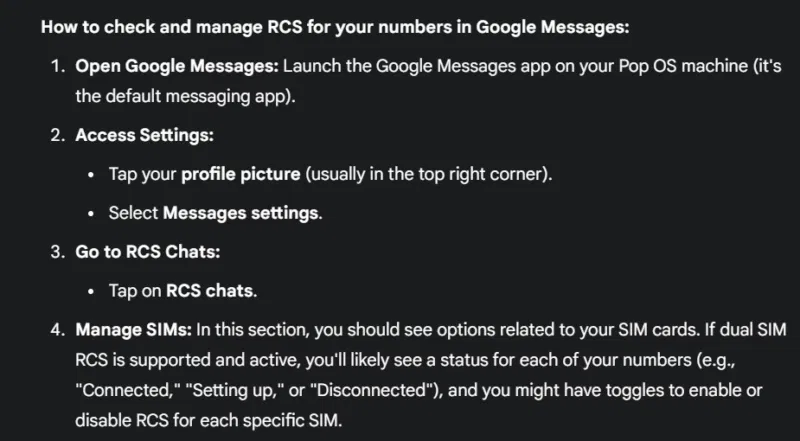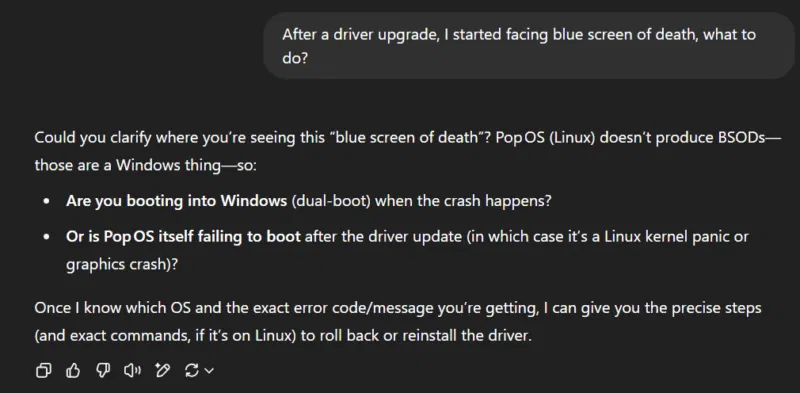4 Reasons You Should Stop Personalizing AI Chatbots
AI chatbot personalization is the latest trend, as ChatGPT , Gemini , Copilot , and other chatbots now offer personalization features. Sharing your preferences may seem helpful, but it can backfire and create unwanted responses. After trying this feature for a while, here are 4 reasons why you should stop personalizing your chatbot.
Note : The author's experience comes mainly from ChatGPT and Google Gemini personalization. There may be chatbots that handle personalization better, but these issues exist in both chatbots, with ChatGPT being slightly better.
They may give biased answers.
Honestly, this is the expected result. After all, chatbots are known to agree with users. When you tell AI what you like and don't like, they try not to give you direct answers that contradict you. This means you'll often get answers that take your preferences into account.
For example, the author asked Gemini to "rank the best Linux distributions for gaming" and it ranked Pop!_OS first because it knew the author had used this distribution.

However, when running the same search (copy/paste) without personalization, Nobara Project ranked first on the list, Pop!_OS ranked 5th. Such bias can be really bad for your experience because it can prevent you from finding new things and make you confident that whatever you're doing is right, even if it's not optimal.

Increased likelihood of AI hallucinations
AI illusion is a common problem, and hackers have even used it to carry out hijacking attacks. AI chatbots create illusionary information and present it as fact, often in a way that makes it difficult to refute their claims. Personalization further exacerbates the problem of AI illusion because it often focuses on queries with your personal information at the forefront.
Even if you ask a question about something completely different, it will try to connect the dots to turn the question into your personal information. This often results in the AI forcibly connecting the information to your personal information and lying.
For example, the author asked Gemini about using RCS in Google Messages when setting up dual SIM. Knowing that the author was using Linux, it somehow connected the Android query to Linux. It confidently gave instructions for Android apps on Linux. It even called Google Messages the default messaging app on Pop!_OS.

Forced to clarify what not to do
Typically, if you ask a question without providing any context, AI chatbots will make a best guess and are usually right. This means you can start most conversations without going into detail about exactly what you're talking about, saving time. With personalization enabled, it will try to connect the query to your personal information if it's even partially relevant. This can lead to incorrect information being provided or the AI asking additional questions for clarification.
For example, the author asked ChatGPT a simple query about encountering a BSoD after updating a driver. The Blue Screen of Death (BSoD) is a Windows-only error, so it would normally guess that you are experiencing a Windows issue. However, instead, it started asking for more details because it knew the author was using Linux, forcing the author to clarify that he was using Windows.

AI wastes response and token space by adding extra information
AI chatbots process information using a token system. Since AI responses are so resource intensive, this token system allows the chatbot to manage the length of its responses based on the user's question and package, just like the free or paid version. Therefore, all information in the response is limited by this token system; any additional information that you don't need will still cost you tokens.
With personalization, any question you ask that is even partially related to personal information, the AI will waste some tokens to provide more information.
For example, the author spoke to Gemini about Windows Defender and how it works with third-party antivirus programs. There was no mention of Linux, but decided to dedicate a section to Linux to repeat the same example given about Windows. This space could be used to provide more information about Windows.

Personalization can make information more relevant, but it can also lead to inaccurate and biased responses, making it difficult to trust the answers. Turn off personalization on any AI chatbots you use! Instead, try to craft your prompts in a way that helps you get the exact answer you need.
You should read it
- 8 key factors to consider when testing AI chatbot accuracy
- How to use AI chatbot on Firefox in the sidebar
- Google's AI chatbot for medical support has been tested in hospitals
- How to use DeepSeek Chatbot
- How to open Personalization the old interface on Windows 10
- How to build a chatbot using Streamlit and Llama 2
 Learn everything before you buy on Amazon with new audio summaries
Learn everything before you buy on Amazon with new audio summaries TotalAV Essential Antivirus
TotalAV Essential Antivirus 6 Pros and Cons of Meta AI
6 Pros and Cons of Meta AI TOP Generative AI tools and applications by field
TOP Generative AI tools and applications by field How to encrypt files before uploading to the cloud
How to encrypt files before uploading to the cloud 7 Most Exciting Features on iPhone with iOS 18
7 Most Exciting Features on iPhone with iOS 18